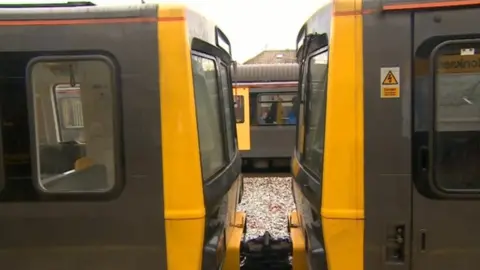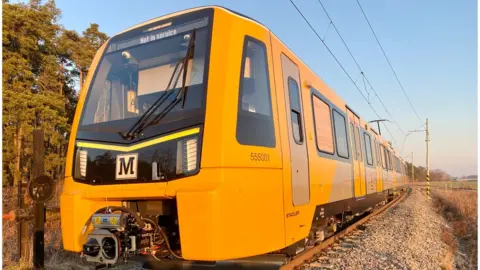Tyne and Wear Metro has one of 'worst' years for reliability
 BBC
BBCThe Tyne and Wear Metro suffered one of its worst years for reliability and many of its trains were defective, councillors have heard.
Figures showed only just over a quarter (27%) of trains were able to go into service in February.
The ageing fleet, which is more than 40 years old, is being updated with new trains due later this year.
Metro operator Nexus said it was "working on plans" to avoid problems in 2024.
Passengers have had to deal with frequent reductions in the timetable, including the loss of some peak-time services.
Stadler, which maintains the fleet, was served formal notice to deal with reliability issues over the winter period.
Breakdowns were blamed on factors including the fleet's age, problems securing replacement parts and the cold weather, the Local Democracy Reporting Service reported.
The North East Joint Transport Committee (NEJTC) was told the number of functioning trains had risen to 87.5%, but that this figure "fluctuated".
 Nexus
NexusStadler managing director Paul Patrick said the firm had faced "huge obsolescence and supply chain issues".
"Fundamentally, the age of the fleet does not help and we are having a lot of power issues," he said.
"More so, at a catastrophic level where components have to go away for reworking and that takes a lot of time."
Stadler said it would be buying extra parts in advance of train failures, increasing staffing levels and bringing in external specialists to diagnose faults.
North Tyneside's deputy mayor Carl Johnson said the transition to a new fleet "should have been done 10 years ago".
Nexus said it was preparing improvement plans to avoid trains being badly affected during colder temperatures in the winter.

Follow BBC North East & Cumbria on Twitter, Facebook and Instagram. Send your story ideas to [email protected]
